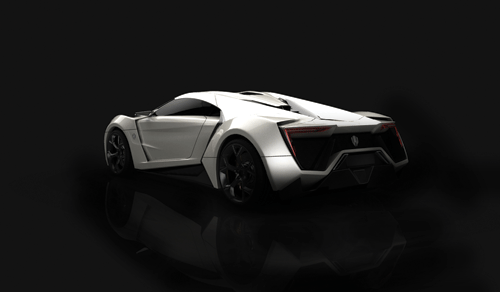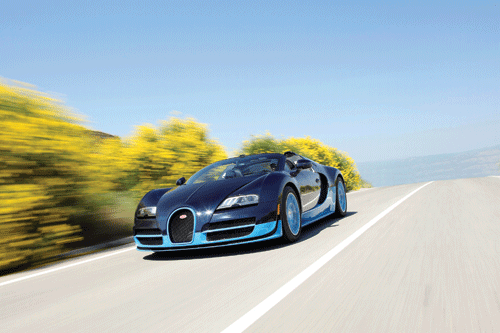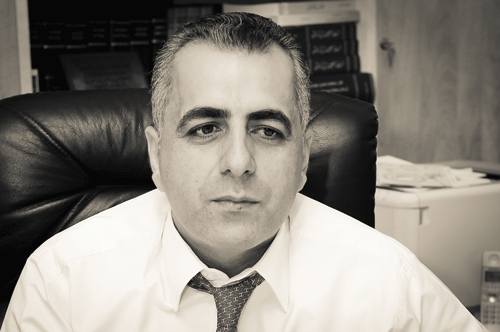The concept of fantasy cars is well established on the wide avenues of automotive fiction. Think Transformers. And it has been exceedingly difficult to get these and other octane fairy tales out of my mind this summer because of a prospective car maker called W Motors, author of a new and absolutely presumptuous automotive project, the Lycan hyper car.
Although this $3.4 million car won’t have capacities to shape-shift into a super-robot (it won’t even be able to fly or swim), images of impossible dream cars became inescapable the more I was being told of the vehicle by its inventor and eventual manufacturer, Lebanese entrepreneur Ralph Debbas.
It is perfectly healthy for an entrepreneur to have a strong sense of self-worth and dreaming up a new supercar seems to have come naturally to Debbas, who graduated a couple of years ago from Coventry University in the United Kingdom with a masters degree in automotive design, and whose ambitions loom larger than his entrepreneurial credits. This perhaps excessive confidence plays out in high gear as Debbas claims that what he is creating is a whole line of Arab supercars, emphasis on ‘Arab’.
However, the Lycan (like most things in W Motors, the name is wolf-themed) will come with German engineering, Austro-Canadian workmanship and Italy-based assemblage plus a hologram derived from a Californian inventor’s work. All very respectable as far as partnerships and the expertise involved, but it sounds more like a mongrel of multi-nationality than a pure breed racer of Arab pedigree.
What makes the car Arab, Debbas counters, is that he did the design and that the company is registered in Lebanon; plus, W Motors will open shop in downtown Dubai later this year. “The showroom and the design center and the virtual assembly line, everything is being done in Dubai.”
The virtual assembly line, however, is not to be confused with the car’s real assembly at a plant in Torino, Italy. The Dubai virtual reality will happen in an office tower where car buyers can peep, high-tech of course, while their vehicles are put together. Such reasoning still seems thin. There is a more important issue, however, than whether this hyper car’s links to Beirut and Dubai are enough to earn the brand the status of first Arab supercar.
All successful car brands have identities. These identities of manufacturers and whole national automotive industries are tied to their accomplishments in engineering, efficiency, safety, convenience, affordability and so forth. The question then is if this car will make a contribution to the region’s automotive future, and technically will prove to be more than a marketing label and anachronism in a time of global manufacturing cultures. As Debbas admits, the Lycan’s highly-touted hologram, for example, won’t provide positive tech impulses for the mass market.
Debbas put the car’s price point at stratospheric $3.4 million (in Lebanon it would be $5.6 million, after taxes) in a calculated move to attract attention and avoid having to compete with established names in the ultra-high-luxury niche. No other maker asks that much, on top of which W Motors has copied a page from the playbook of off-plan real estate developers and requests buyers put 30 percent down before the assembly crew even starts on the car.
Despite all this playing with pricing to create a market for the car, Debbas naturally says that the exorbitant cost will be fully justified by the car’s engineering and extras, not found in the average Aston Martin One-77 or Bugatti Veyron, such as a door mechanism that costs a million dollars to develop and not one but two holograms (a “W” on the hood pops up before the car is put in motion).
While Debbas downplays some of the conspicuous things about the car — he says the gold armatures are only a very small cost factor and the 1.5 millimeter diamonds in the LED lights will create but a “beautiful glow” and practically no bling at all — it remains the designer’s secret if the car is going to provide value for money even by the insular standards of invidious consumption.
Aside from leaving questions unanswered that regard his own capital — and how he got up to $15 million in capital financed from family and friends without submitting to the pesky scrutiny of a bank or private equity capitalist — Debbas simply projects promise in response to whatever queries arise. But while waiting for W Motors to deliver its product to market, there is a distinct chance that the characteristics of this “Arab supercar” will be captured by the question: “What goes bling, vroom, vroom, bling, bling, bling?” Answer: A supercar à la Libanaise.
THOMAS SCHELLEN is Executive’s MENA editor


![CAT_Picture11[1]](https://www.executive-magazine.com/wp-content/uploads/2014/01/CAT_Picture111.gif)






